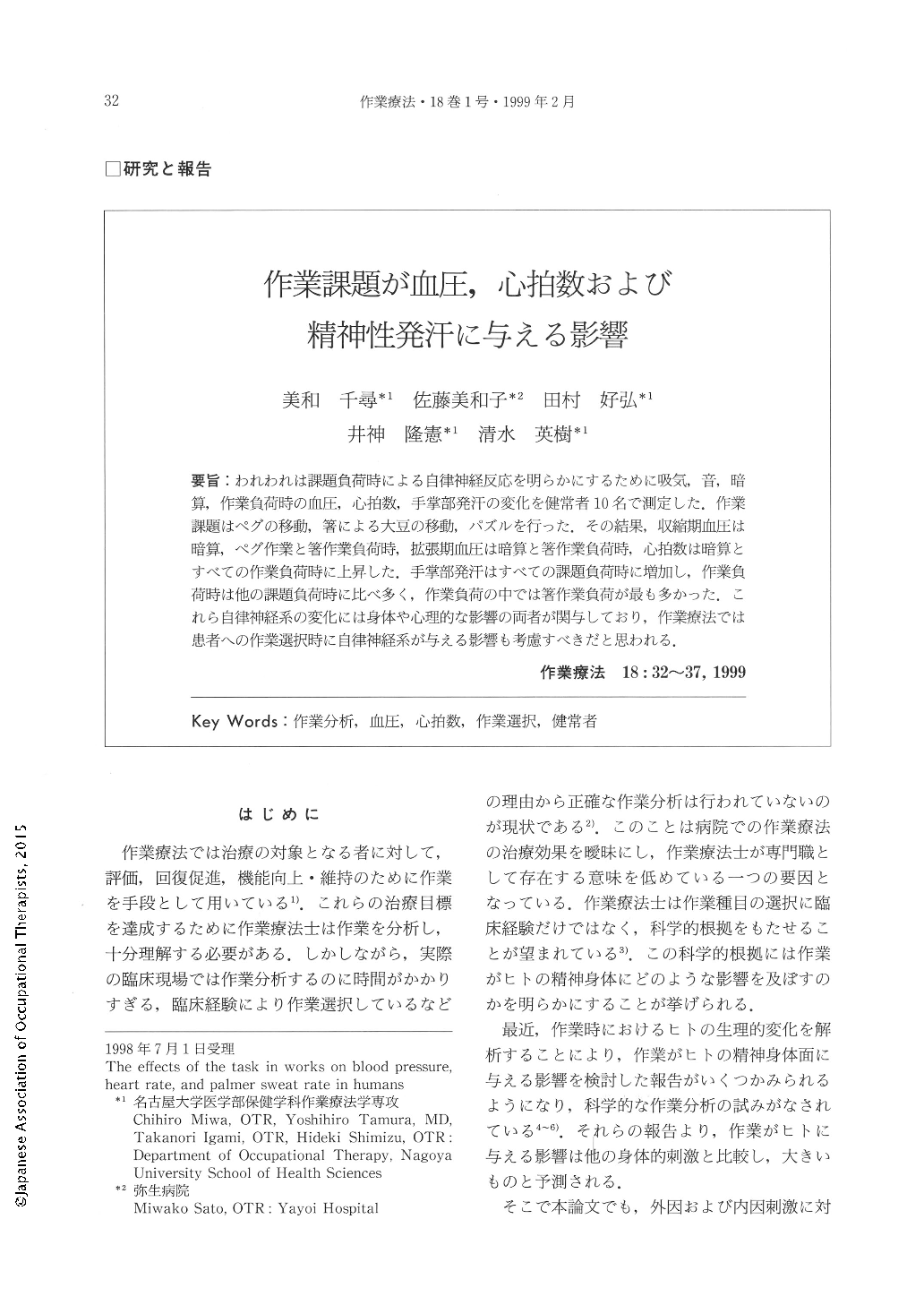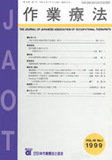Japanese
English
- 販売していません
- Abstract 文献概要
- 1ページ目 Look Inside
- 参考文献 Reference
- サイト内被引用 Cited by
要旨:われわれは課題負荷時による自律神経反応を明らかにするために吸気,音,暗算,作業負荷時の血圧,心拍数,手掌部発汗の変化を健常者10名で測定した.作業課題はペグの移動,箸による大豆の移動,パズルを行った.その結果,収縮期血圧は暗算,ペグ作業と箸作業負荷時,拡張期血圧は暗算と箸作業負荷時,心拍数は暗算とすべての作業負荷時に上昇した.手掌部発汗はすべての課題負荷時に増加し,作業負荷時は他の課題負荷時に比べ多く,作業負荷の中では箸作業負荷が最も多かった.これら自律神経系の変化には身体や心理的な影響の両者が関与しており,作業療法では患者への作業選択時に自律神経系が与える影響も考慮すべきだと思われる.
This paper was designed to determine human autonomic responses on some tasks : inspiration, sound, arithmetic and three works. Three works involve moving pegs from a hole to another one for 5min (MP), moving beans by chopsticks from a dish to another one for 5 min (MB), and doing a puzzle with 6 pieces for 5 min (DP). We measured systolic (SBP) and diastolic (DBP) blood pressure by the ocilometolic method, heart rate (HR) by the bipolar electrocardiogram, and sweat rate (SR) on the palmed side of the hand by the ventilated capsule method in 10 healthy young subjects during these tasks.
SBP increased in arithmetic, MP and MB, and DBP increased in arithmetic and MB, and HR increased in arithmetic and three works, and SR increased in all tasks. Increase in SR was larger in MB compared with MP and DP. After all, these works were more effective with regard to autonomic responses than other tasks, and MB was the most effective. These changes may be due to both physical and psychological effects.
In occupational therapy, occupational therapists must consider autonomic responses in activity for the treatment in patients.

Copyright © 1999, Japanese Association of Occupational Therapists. All rights reserved.


